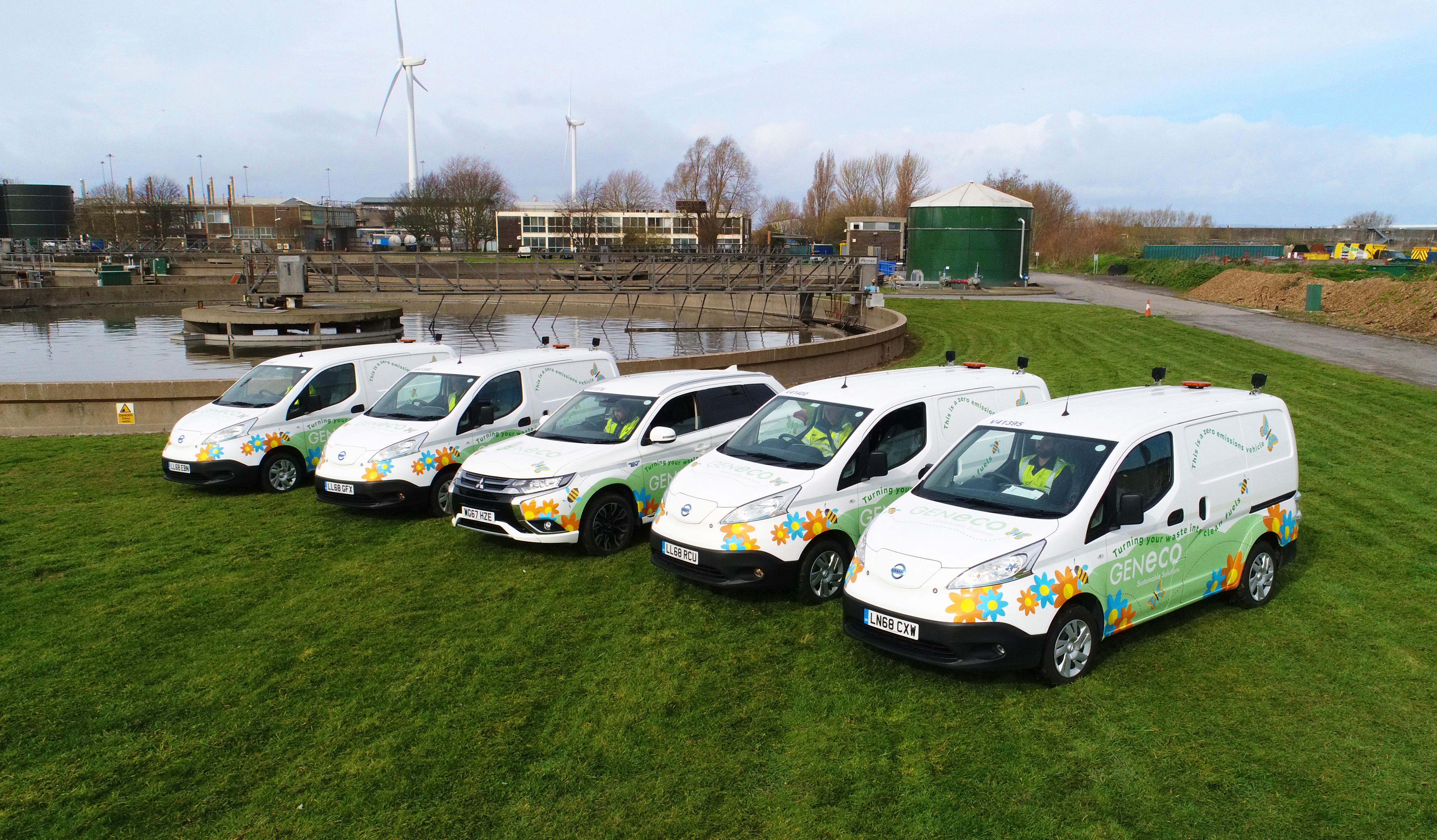GENeco, the Avonmouth-based renewable energy and recycling company best known for its poo-powered Bio-Bus, has plugged into the electric vehicle revolution to extend its zero-emission credentials.
The firm, part of Bath-headquartered Wessex Water, is trialling six fully-electric Nissan eNV200s, pictured below, at three sites – Avonmouth, Trowbridge and Berry Hill in Dorset.
Charging points have been installed at the locations and the vehicles will be powered by renewable electricity produced from the anaerobic digestion of sewage sludge and food waste.
The vans have been joined by four plug-in petrol hybrid pick-ups which will be used where four-wheel capability is required.
The environmental benefits of the trial will save more than 50 tonnes of carbon emissions a year and reduce the negative impact on air quality in urban areas – the equivalent of taking 24 cars off the road.
GENeco managing director Mohammed Saddiq said: “We’re really excited about the potential for these new vehicles to make our fleet more sustainable.
“As with any emerging vehicle technology, we need to balance the needs of the users against environmental performance. Therefore, data from the trial will be used to inform future purchasing decisions.”
GENeco, which was created by Wessex Water in 2008 and operates out of Bristol sewage treatment works in Avonmouth, has a history of running vehicles on low-carbon, clean fuels.
This included its Bio-Bug – the UK’s first VW Beetle powered by human waste – and the Bio-Bus, the first bus in the UK to run on sewage and food waste.
It currently operates two distinctive Bio-Bees – food waste collection vehicles that are powered by what they collect.
Mr Saddiq added: “Transport is now the largest carbon-emitting sector in the UK, with commercial diesel vehicles responsible for a disproportionately high share of the calculated emissions and significantly contributing to poor urban air quality.
“We want to help change this and, as a local business, we’re also passionate about supporting Bristol’s ambition to become carbon neutral by 2030.”
Every year each person in the UK throws away enough food to power the Bio-Bee for 25 miles. If Bristol recycled all the food waste generated by the city’s residents in a year the Bio-Bee could run every day until the year 3000.































